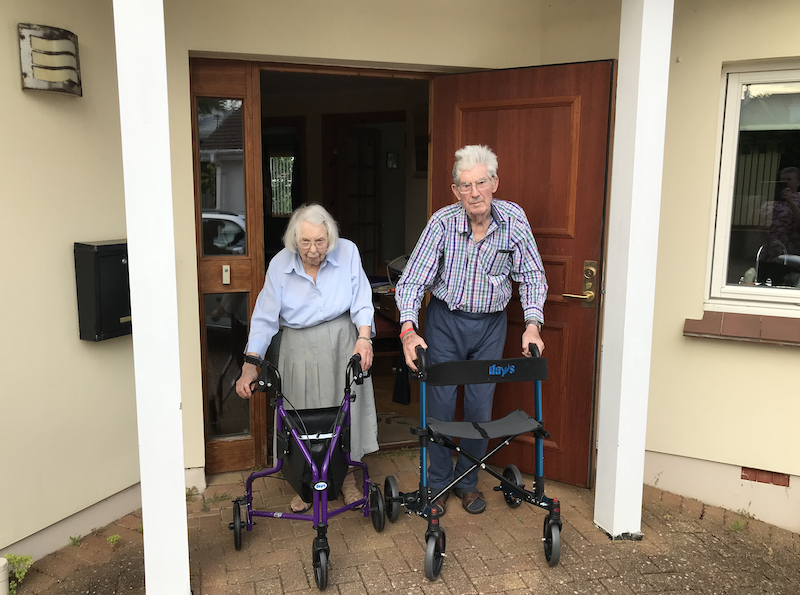


Paul Watt’s father had been left on a hospital ward for three months waiting for a community care package. Following media coverage and public support, Geoffrey Watts has now been offered help that will allow him to live with his wife again.
Mr Watts’ family was facing difficult and expensive decisions after being admitted to hospital earlier this year.
Without a community care package forthcoming, Mr and Mrs Watts were looking at moving into residential care instead, a move which would’ve been costly and more than likely forced them to live apart.
The Committee for Employment and Social Security would then fund £27k of the annual cost of a residential bed. Paul Watt’s argued it would be more beneficial to spend this money in the community.

Pictured: People responded to our story on Facebook, with some citing similar stories with wait times of up to seven months in hospital wards.
Despite the positive outcome for Paul’s family, he said there are others who aren’t so lucky, and who have been struggling for months in a similar position.
“The issues around long-term care payments, direct payment and care in the community remain and still require to be addressed,” he said.
“Leaving anyone living on a hospital ward for three months, without a date for going home, is not acceptable.
“I look forward to the [States] Assembly addressing this matter.”

Pictured: Mr Watts and his wife Shirley will now be able to live at home together, with support from a community care worker.
Express asked the States of Guernsey how many people are waiting for community care packages. We were told the waiting list is unknown, but that the States’ Senior Carer Service supports roughly 375 people.
The President of the Committee for Health and Social Care, Deputy Al Brouard, said the story is indicative of increasing pressures supporting an elderly population.
“While the Committee is not able to comment on individual cases, it has responded directly to Mr Watts about his concerns; his e-mail highlighting the challenges and the very real operational pressures that the ageing demographic is placing on many of the services delivered by HSC,” he said.
"We very much agree that timely discharge from the hospital environment with care provided at home, where this is possible, is in the best interests of all those involved.
“However, despite the very best efforts of the teams across Health & Social Care it is becoming more and more challenging to meet the increasing and unprecedented demand for community care and the resources available to deliver these services are particularly stretched at the moment.”

Pictured: “HSC’s Community Services Team has reported an increase in people feeling that they can no longer manage with informal care alongside targeted interventions from formal providers,” said Deputy Brouard.
Deputy Brouard has used the opportunity to ask any islanders with care experience to come forward and support the service.
The Supported Living and Ageing Well Strategy (SLAWS) has examined a number of interconnected issues between HSC and the Committee for Employment and Social Security. The Policy Letter debated in August last year suggested community care could be funded through the Long-Term Care Insurance Fund.
These recommendations will all be raised within the Government Work Plan set to be debated later this year.
“While there are regrettably no overnight solutions, the Government Work Plan recommends the prioritisation of the Resolutions arising from SLAWS and it will be important for the Committees to be supported by the whole Assembly to make progress on these fronts, with the necessary resources allocated to complete this work,” concluded Deputy Brouard.
Comments
Comments on this story express the views of the commentator only, not Bailiwick Publishing. We are unable to guarantee the accuracy of any of those comments.